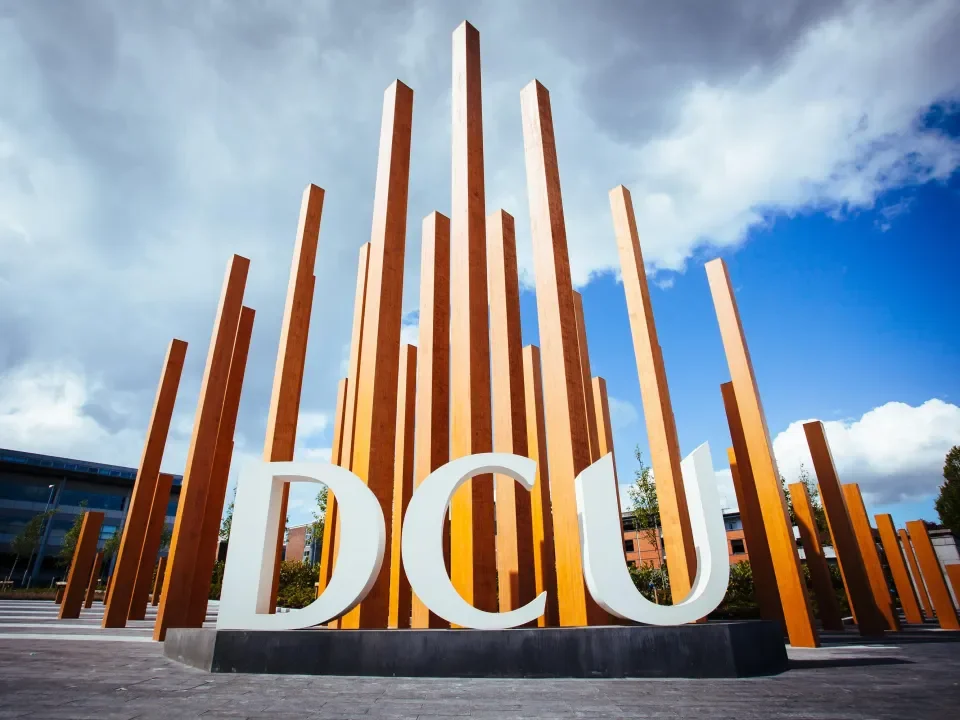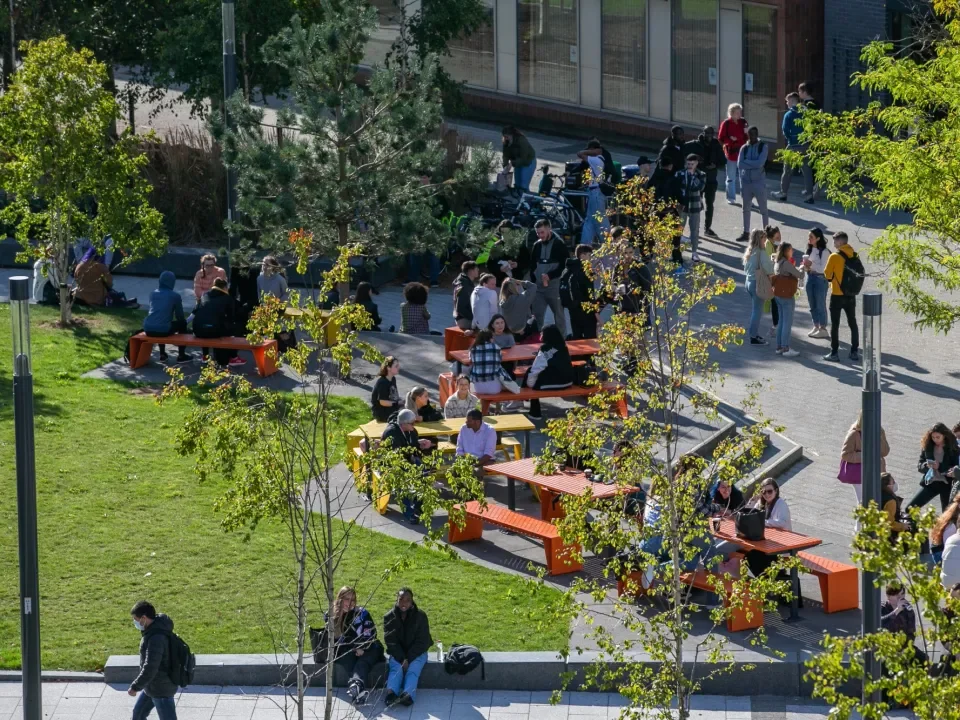
Dublin City University condemns the Russian invasion of Ukraine, and stands with Ukraine.
DCU's formal institutional response will be managed in a number of ways to ensure that DCU can make the most appropriate, sustained and impactful contribution to the Ukrainian crisis.
For Ukrainian students who have an interest in coming to DCU, we have some general information about the university outlined below.
Below you will also find a list of supports for current students, research students and staff. For those who wish to assist in a volunteer capacity, we have listed various different channels on this page.

Irish Refugee Integration Network (IRIN)
IRIN
The Irish Refugee Integration Network (IRIN) is based at DCU, Ireland's first University of Sanctuary.
IRIN seeks to facilitate the integration of those who had to leave their countries due to war, persecution, discrimination, food or water scarcity, or natural disasters. We have more information about the services IRIN has to offer and how you can get in touch with them here.
IRIN seeks to develop strong links between host communities and forcibly displaced persons by supporting local initiatives, by providing information and by ensuring constant dialogue.

DCU Graduation
Programmes
DCU has a wide range of undergraduate and postgraduate courses across our five faculties:

Dublin City University

DCU's Glasnevin Campus
International Students & DCU
At DCU, you will gain an internationally recognised qualification while living in a friendly, vibrant city. More than 20% of our 18,000+ students are international. Find out more on our international homepage.
Current students
There are a range of supports on campus for students and staff from Ukraine and Russia, and we recognise that their families and close friends may be directly impacted by the conflict.
- General student support: student.support@dcu.ie
- Pastoral support: chaplaincy@dcu.ie
- Emotional and mental health and wellbeing: counselling@dcu.ie or healthservices@dcu.ie
- Visa related queries: international.office@dcu.ie
Staff
The Employee Assistance Programme (EAP) is a confidential support service for all DCU employees, provided by Spectrum.Life.
The service is designed to support employees and their immediate family members (18+) in times of need.
This service is open to all DCU staff and campus company staff. For more information and how to contact please see here.
Ways you can help the people of Ukraine
There are a number of ways DCU students and staff can help people either living in Ukraine, or living in Ireland.
If you wish to donate to Irish Red Cross, click here. Additionally, they are looking for vacant properties and spare rooms so that they can help people arriving into Ireland integrate into our communities. They operate the National Register of Pledges for accommodation, which can be accessed here.
For details on how you can donate to Unicef Ireland's appeal, please click here.
Initial response
Our initial response included the provision of accommodation and catering. DCU's offer of accommodation was accepted by the Government and we offered 380 beds between 16 May and 21 August 2022.
Those housed on campus were also offered catering through our canteen services.
DCU will continue to monitor the situation - and the associated advisories issued from the European Commission, the Department of Foreign Affairs, the Higher Education Authority, and our institutional partners. As the extent and nature of requirements evolves we will adapt our institutional response.
Sectoral response
DCU is part of the sectoral response being led by the Irish Universities Association (IUA) in conjunction with Minister Simon Harris and the Department of Further and Higher Education, Research, Innovation and Science (DFHERIS).
A number of DCU units are engaged with the IUA on this response e.g. Registry, Operations, Engagement, Communications. All these DCU representatives are liaising regularly at institutional level.
DFHERIS and the sector established the National Student and Researcher (NSR) Helpdesk, which is supported in its work by a National Steering Group, and hosted by Maynooth University. It assists the needs of third-level students and researchers fleeing the war. You can read more about the NSR in this statement from Minister for Further and Higher Education, Research, Innovation and Science Simon Harris.
The NSR coordinate and advise students and researchers on the documentation required and, if this is an issue, how to obtain it; it will refer them to the most appropriate HEI for their areas of research or study and will ensure there is consistency of approach across HEIs.
